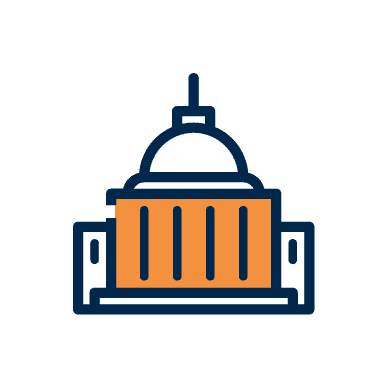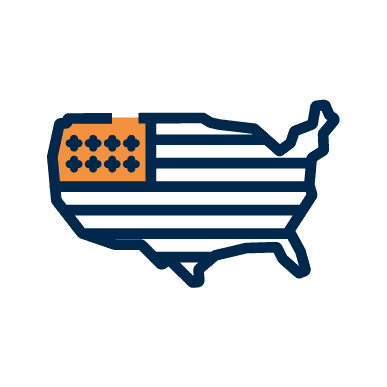The recent events in Ukraine have resulted in an unprecedented imposition of crippling financial sanctions against Russia by the United States, the European Union and multiple countries around the globe. For the U.S., these sanctions are imposed and then maintained by the Department of the Treasury’s Office of Foreign Assets Control (OFAC).
Overview of OFAC and the Sanction Process
As stated on its website, OFAC is a financial intelligence and enforcement agency that administers and enforces economic and trade sanctions based on US foreign policy and national security goals against targeted foreign countries and regimes, terrorists, international narcotics traffickers, those engaged in activities related to the proliferation of weapons of mass destruction, and other threats to the national security, foreign policy or economy of the United States.
As part of its enforcement efforts, OFAC publishes a list of individuals and companies owned or controlled by, or acting for or on behalf of, targeted countries. Their assets are blocked and U.S. persons and organizations are generally prohibited from dealing with them. Once the Secretary of the Treasury designates an individual or entity as a “Specially Designated National” (or SDN), OFAC takes action to block their assets in the United States including notification of the blocking order to U.S. financial institutions, directing them to freeze the assets of the SDN. While OFAC often seems to work in relative obscurity compared to other federal offices or divisions, when it flexes its authority, the consequences can be felt quickly by the targeted nation or entity.
Notice of each designation is published in the Federal Register. OFAC also adds the individual or entity to its Specially Designated Nationals List, which is searchable, and posts a notice of this addition on the OFAC website. In addition, anyone can request online alerts from the Treasury when sanction activity occurs. Designations remain in effect until the designation is revoked, or the original Executive Order lapses or is terminated in accordance with federal law.
Recent US Sanctions Against Russia
The number of recent actions taken by the Treasury against Russia since February 21 illustrate the enormity of the recent sanctions intended to punish and defund Russian military actions against Ukraine.
On February 21, 2022, the US imposed what President Biden referred to as the “first tranche” of sanctions against Russia in response to Russia recognizing the areas of Ukraine as sovereign states and also authorizing deployment of troops into the Ukraine. This first wave of sanctions imposed full blocking sanctions on two large state-owned Russian financial institutions that provide key services crucial to financing the Kremlin and the Russian military that collectively hold more than $80 billion in assets and finance the Russian defense sector and economic development. These measures freeze their assets in the United States, prohibit U.S. individuals and businesses from doing any transactions with them, shut them out of the global financial system, and foreclose access to the U.S. dollar. In addition, the U.S. expanded prohibitions restricting U.S. individuals and firms from participation in secondary markets for new debt issued by major Russian banks and financial agencies of the Russian Federation to cut off a key avenue for the Russian government to raise capital. Furthermore, full blocking sanctions were imposed of five Russian elites and their families with close ties to Vladimir Putin.
Since then, the sanctions imposed have increased in both reach and scope. Most recently, on February 28, OFAC issued a notice prohibiting persons in the United States from engaging in transactions with the Central Bank of the Russian Federation, the National Wealth Fund of the Russian Federation, and the Ministry of Finance of the Russian Federation. This action effectively immobilizes any assets of the Central Bank of the Russian Federation held in the United States or by U.S. persons, wherever located. Since significant amounts of Putin’s “rainy day fund” intended to prop up the Russian economy is held in U.S. currency and outside of Russia, this effectively cuts off access to much of these funds. Biden also added another Russian oligarch to the list of individuals specifically sanctioned by the United States.
“While recent actions have closed off many of the funds of the Central Bank of the Russian Federation, among others, Treasury remains committed to permitting energy-related payments — ranging from production to consumption for a wide array of energy sources — involving specified sanctioned Russian banks. To help protect Americans, partners, and allies from higher energy prices that would drive more resources to Russia, Treasury swiftly issued and updated Russia-related guidance to allow U.S. financial institutions to continue processing these transactions and underscore that such activity is not prohibited by sanctions.”
Due to the complexity of navigating transactions that may involve Russian financial institutions, businesses or individuals, Treasury also issued a series of FAQs to clarify those circumstances where energy transactions may proceed, as well as providing general guidance about the spate of new prohibitions which U.S. entities must navigate.
Importance of Compliance by US Businesses
When an individual or organization appears on the SDN List, that designation has impact across multiple industries. Commodity markets, as well as insurance and financial institutions are strictly prohibited from all business dealings with these sanctioned entities and individuals. To ensure compliance with federal sanctions, US organizations must frequently conduct OFAC SDN search to identify whether any current or new clients are included on OFAC’s SDN List. The SDN List is frequently updated but there is no predetermined timetable; names are added or removed as necessary and appropriate. Since there is no predetermined OFAC update schedule, instituting a monthly screening against the Treasury’s Sanction List will help companies avoid business dealings with sanctioned parties. For a more in-depth review of the specific steps that companies should take to protect themselves from doing business with a sanction individual or entity, please review the attached article.
Conclusion
Compared to the other federal exclusion lists like the LEIE or SAM.gov, the possibility of a potential contractor, employee or business partner appearing on the OFAC Sanctions List is less likely unless your firm has regular foreign financial dealings. Nonetheless, the consequences of failing to check for sanctions far outweighs the time and cost to regularly screen against the SDN List.
Streamline Verify, a company with years of experience in screening for government exclusions, is well-situated to serve the insurance and banking industries by performing the OFAC searches necessary to avoid the pitfalls of hiring or conducting business with a sanctioned party. Streamline Verify’s time-tested cutting edge web application provides foolproof sanction screening of SDNs, to ensure OFAC compliance.



































